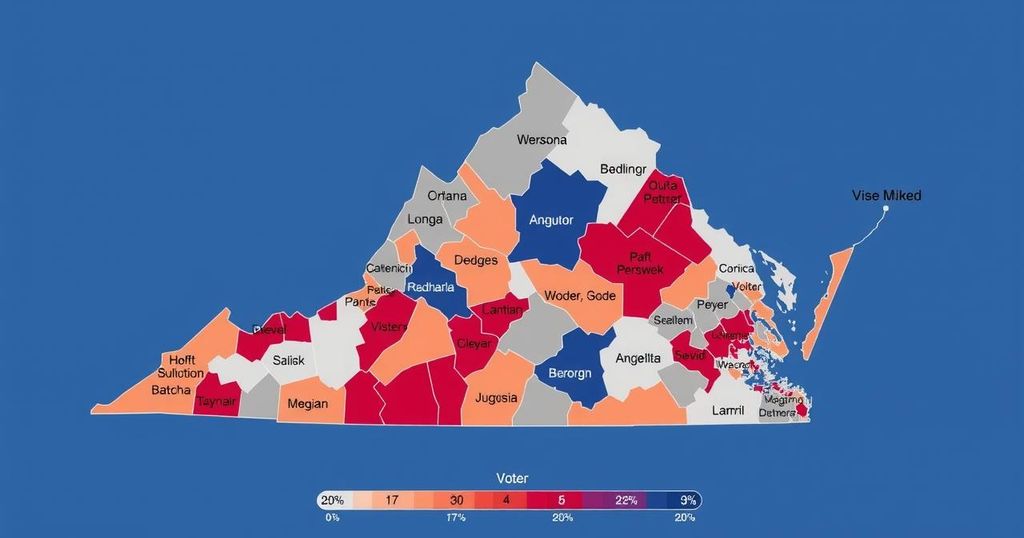World news
2024 PRESIDENTIAL ELECTION, AFRICA, AP, CIVIL RIGHTS, DEMOCRATS, DONALD TRUMP, ELECTION, ELECTION INTEGRITY, FAIRFAX, GLENN YOUNGKIN, KANNAN SRINIVASAN, LOUDOUN COUNTY, MIKE KROPF, NORTH AMERICA, PRESIDENTIAL ELECTION 2024, REPUBLICANS, RICHMOND, RICHMOND TIMES, SCOTT SUROVELL, SENATE, SOUTH AFRICA, U.S. ELECTIONS, UNITED STATES, VA, VIRGINIA
Oliver Grayson
0 Comments
Virginia Elections Reflect Stability in Voter Sentiment Ahead of Gubernatorial Race
Virginia’s recent special elections showed no significant shifts in voter sentiment, with Democrats securing two key districts while Republicans won one. Governor Glenn Youngkin faces a Democratic legislature in his final year, heightening attention on the upcoming gubernatorial race in 2025, which may reflect national voter trends.
In recent special elections in Virginia, no significant shifts in voter sentiment were observed. The elections saw Democrats maintaining their slim majority in the statehouse by winning two progressive districts, while Republicans secured one conservative district. These results are indicative of a continued partisan divide, as political observers now turn their attention to the implications for the upcoming gubernatorial election following the presidential election. Governor Glenn Youngkin, who is term-limited and has been speculated as a potential presidential candidate for 2028, must navigate a Democratic legislature in his final year in office during these pivotal contests.
The recent elections took place as lawmakers commenced their legislative session, with Democrats holding a narrow lead in both chambers. In Loudoun County, 19% of eligible voters participated in the elections, a noticeable turnout despite inclement weather conditions, reflecting engagement levels in the political landscape. Political analysts suggest that state-level races in Virginia, unlike most other states, often serve as a barometer for national voter sentiment, particularly in a year where significant contests will decide both the executive branch and the entire House of Delegates. As observers anticipate a fiercely contested gubernatorial race in 2025, heavy financial investments from national entities are expected from both parties as they vie for control and influence.
Virginia conducts its state elections in odd-numbered years, often positioning itself as a key indicator of national trends in voter sentiment, particularly following a presidential election. With a reputation for being politically competitive, the state has garnered attention due to its close political battles, especially as new candidates such as Republican Lt. Gov. Winsome Earle-Sears and former Democratic U.S. Rep. Abigail Spanberger emerge in the race to succeed the term-limited Governor Youngkin. This year’s unique political landscape involves heightened scrutiny as both parties prepare for significant electoral contests in the near future.
The recent special elections in Virginia highlight the ongoing partisan rivalry within the state’s legislature while indicating no major changes in voter loyalty. With the political climate closely watched ahead of significant gubernatorial elections, the outcomes of these contests may foreshadow broader national trends. As Governor Glenn Youngkin navigates his term’s final year amidst a Democratic-majority legislature, both parties are poised for strategic positioning leading up to the 2025 elections. The electoral dynamics in Virginia remain critical for understanding the national political landscape.
Original Source: apnews.com




Post Comment